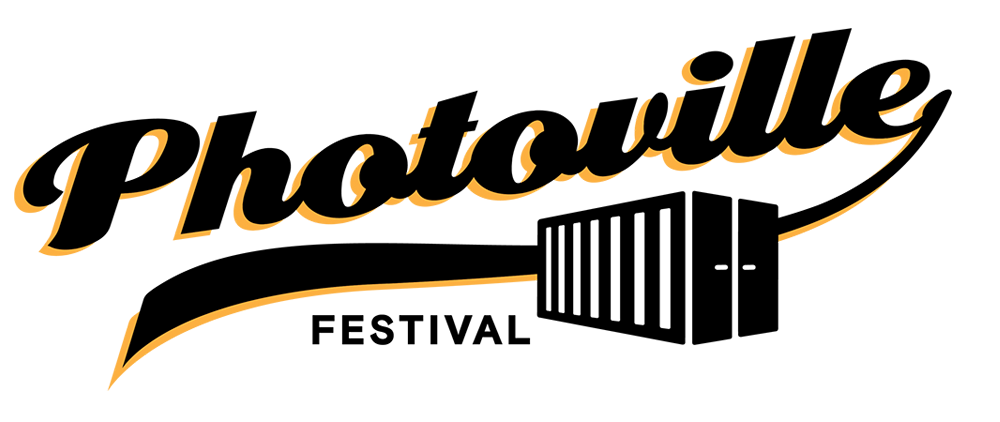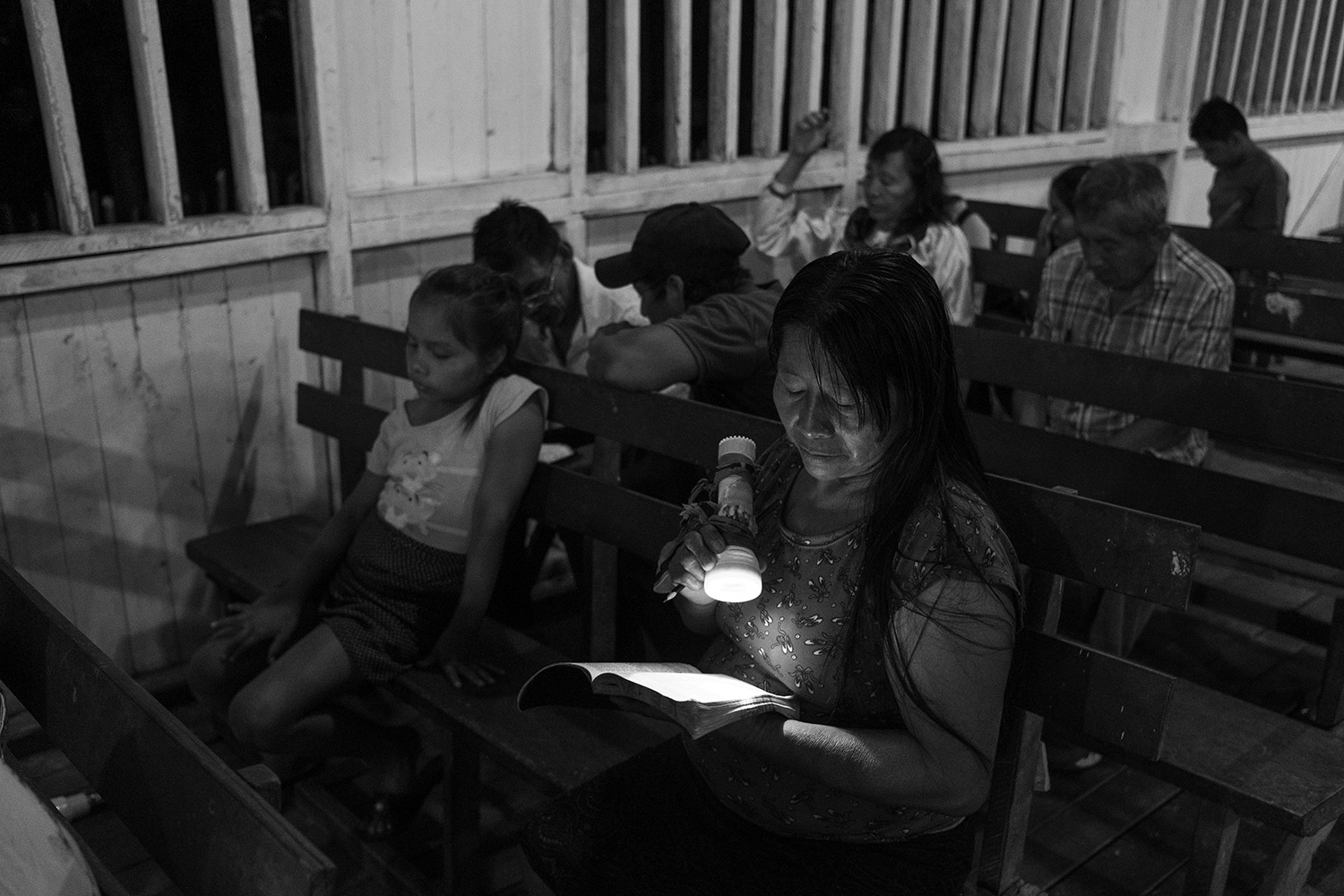

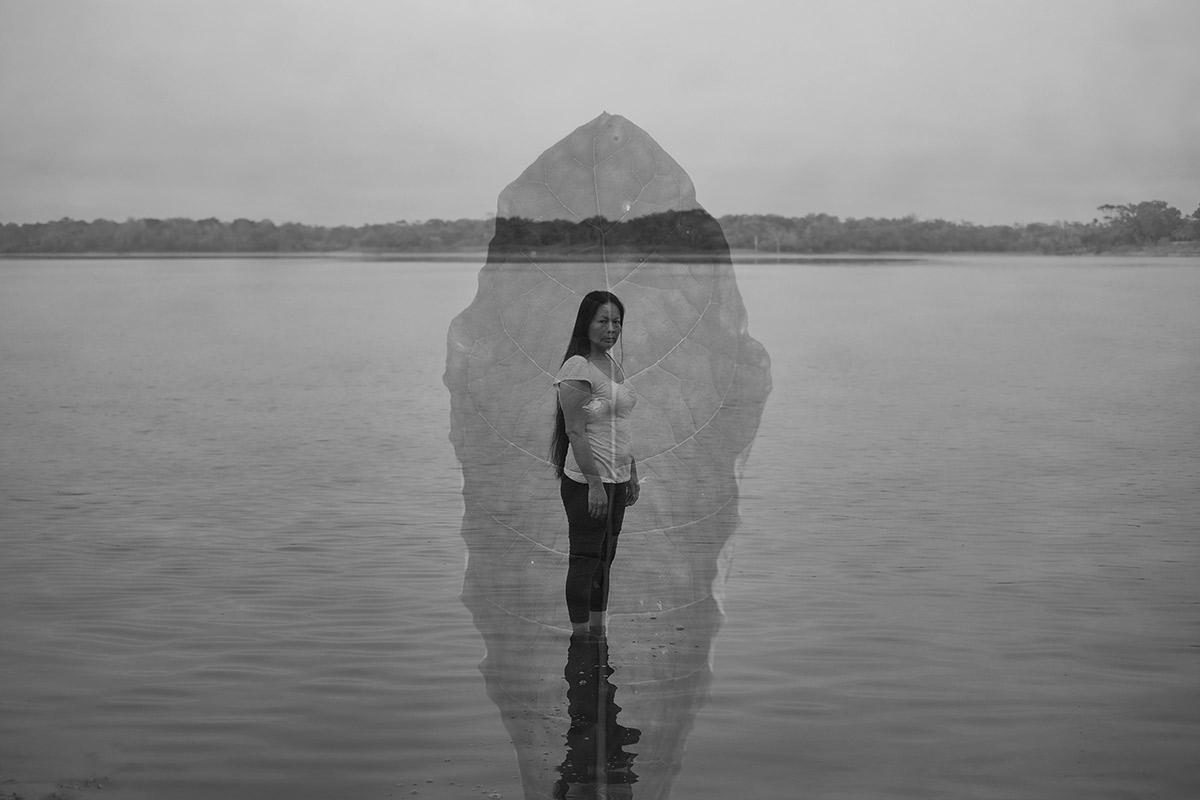
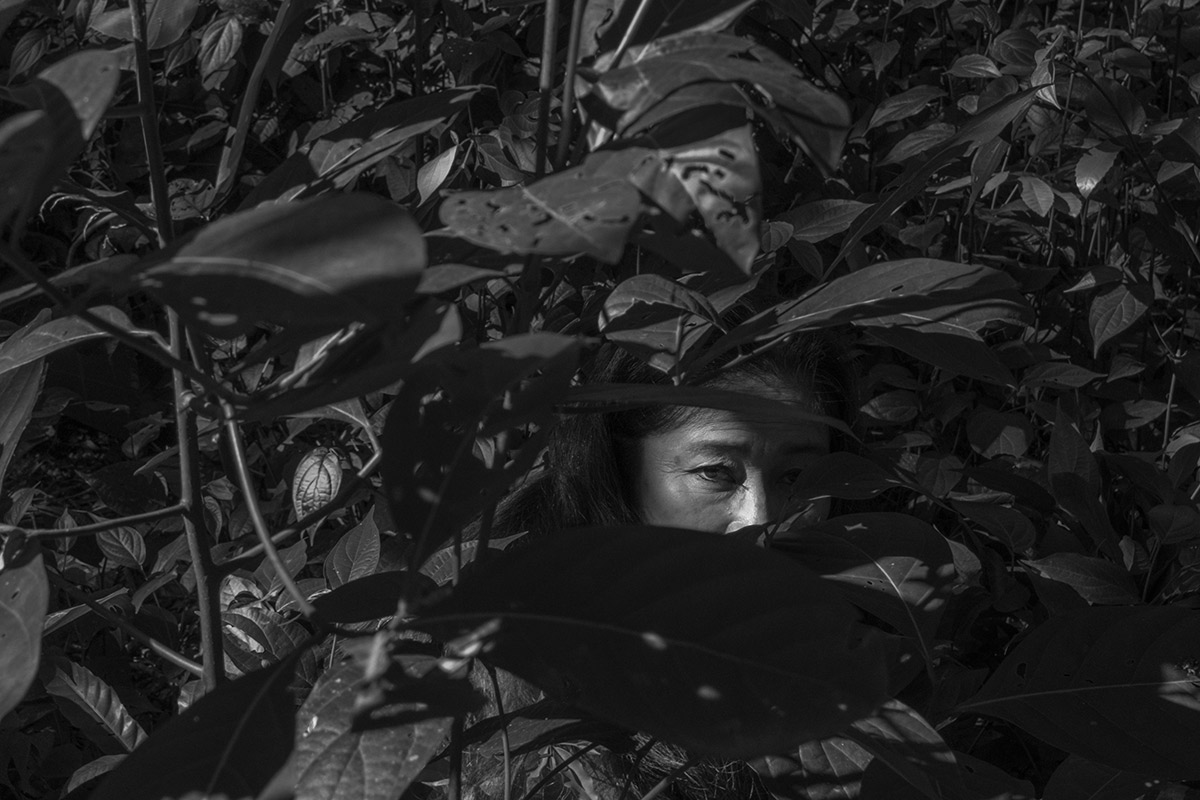
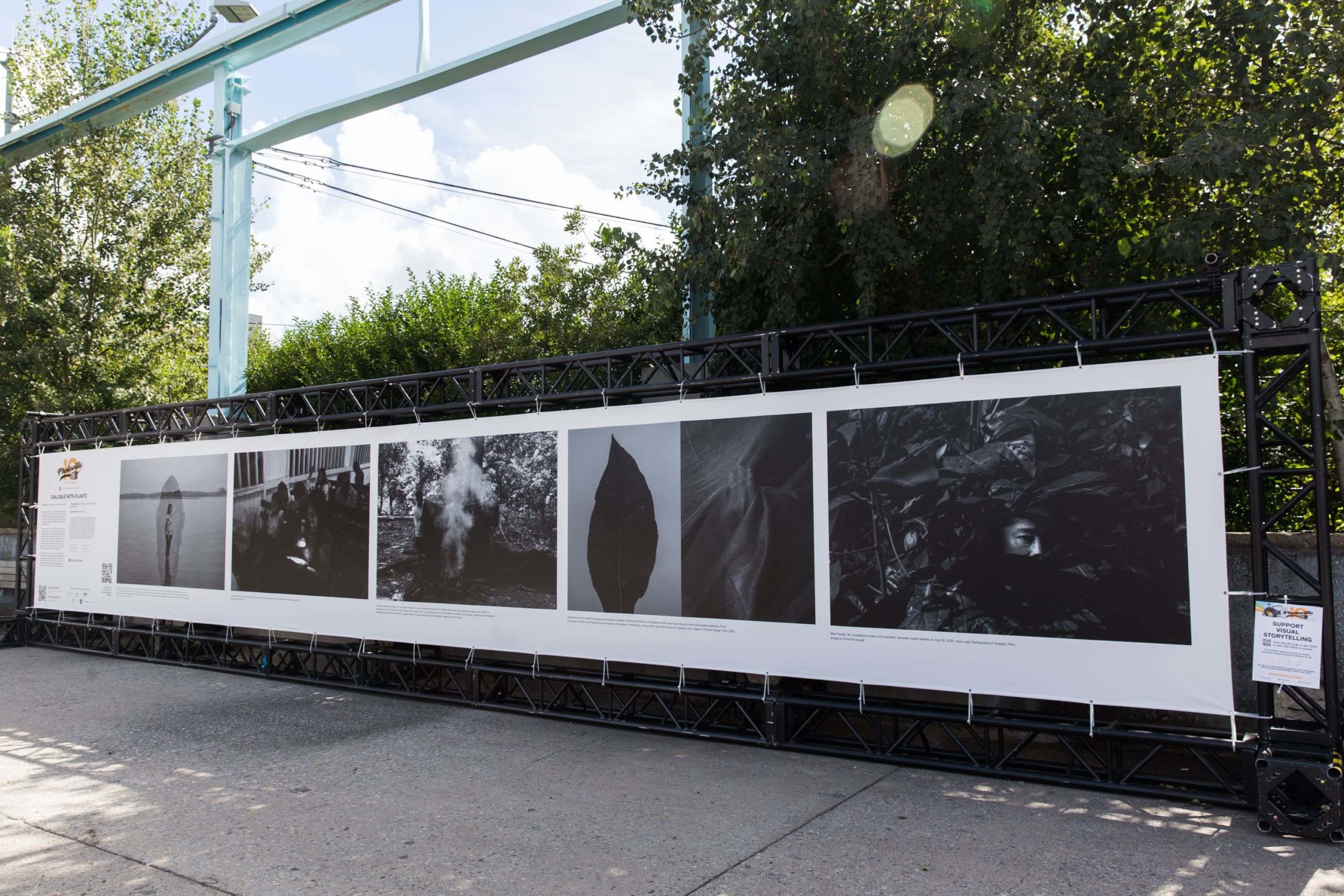
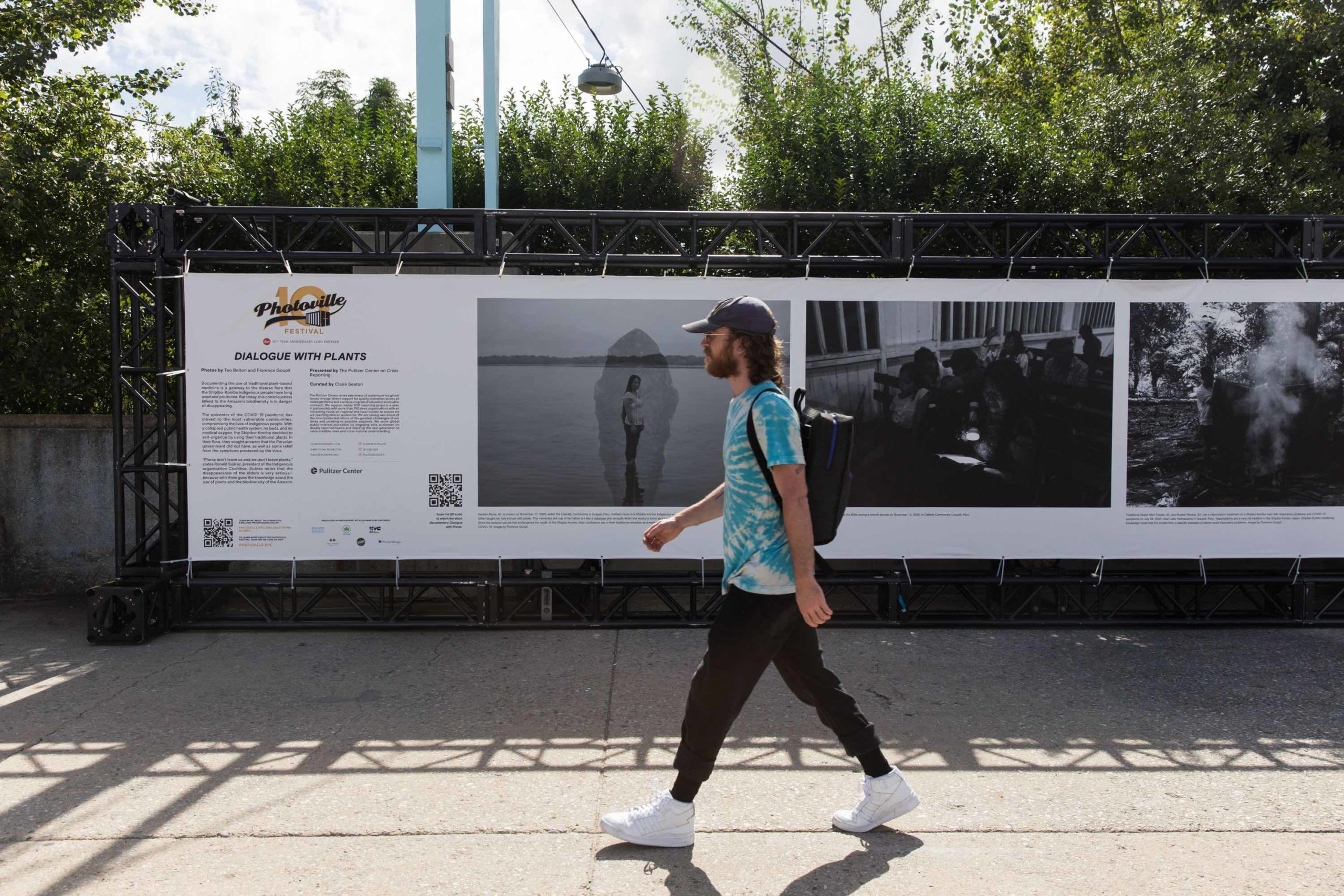
Documenting the use of traditional plant-based medicine is a gateway to the diverse flora that the Shipibo-Konibo Indigenous people have long used and protected. But today, this consciousness linked to the Amazon’s biodiversity is in danger of disappearing.
The epicenter of the COVID-19 pandemic has moved to the most vulnerable communities, compromising the lives of Indigenous people. With a collapsed public health system, no beds, and no medical oxygen, the Shipibo-Konibo decided to self-organize by using their traditional plants. In their flora, they sought answers that the Peruvian government did not have, as well as some relief from the symptoms produced by the virus.
“Plants don’t leave us and we don’t leave plants,” states Ronald Suárez, president of the Indigenous organization Coshikox. Suárez assures that the disappearance of the elders is very serious—because with them goes the knowledge about the use of plants and the biodiversity of the Amazon.
Their grandparents, as Suárez points out, are living libraries. The abrupt interruption of oral transmission can represent the end of a culture.
Artist Bios
-
Teo Belton
Teo Belton (1991, Zapopán, Mexico) is a French and Mexican film director and screenwriter based in Peru.
Belton embraces dreams, reality, and fiction and exposes the most intimate landscapes of nature—inspired by Colombian magical realism. In 2016 he directed the short film “Somnotoscopio,” where he tells the story of a 19th century inventor who created a cinematograph capable of filming dreams. The film received acclaim at national festivals, and was awarded by DAFO of the Peruvian Ministry of Culture. That same year, he participated in the SONY Short Fest contest organized by the University of Lima and SONY, creating the short film “KA,” which was awarded first place. As part of the award, Belton and his team went to Las Vegas to exhibit the project at the prestigious NAB SHOW.
His latest short film, “Sheut,” made in 2017, had 18 official national and international selections, and also won 18 international awards in different categories.
In 2021, he is directing “Uroboros,” which deals with a story of mourning, with surreal and science fiction overtones. He was recently awarded a National Geographic grant to film in Peru and, at the same time, a documentary project focused on the Peruvian Amazon with the support of the Pulitzer Center Rainforest Journalism Fund.
-
Florence Goupil
Florence Goupil (1990, Lima, Peru) is a French and Peruvian photographer based in Peru. Goupil is currently a National Geographic Explorer.
Raised in an Andean family, sheltered by the stories of their traditions, but formed in the French school, Goupil grew up between two cultures; instilling in her a deep commitment to issues such as identity, human rights, environment, and the Indigenous nation’s living memory.
Her work has been exhibited at the International Center of Photography and the Bronx Documentary Center, and published in National Geographic, BBC, Polka Magazine, El País, BJP, and other international media. She is a contributor for Le Monde and OjoPúblico. In 2020, she was nominated for the Joop Swart Masterclass of World Press Photo and was awarded a grant by National Geographic Society. She is currently based in the Peruvian Amazon, doing a multimedia project about the COVID-19 pandemic in an Indigenous community, after obtaining the National Geographic Society Emergency Fund for Journalists. For this project, she was recently awarded with the 2020 Getty Images Reportage Grant and the Pulitzer Center Rainforest Journalism Fund Grant. In 2021, she received the POY Latam Honorable Mention for Photographer of the Year and was nominated for the Leica Oskar Barnack Award.
Organizations
-

The Pulitzer Center on Crisis Reporting
The Pulitzer Center’s mission is to champion the power of stories to make complex issues relevant and inspire action. Founded in 2006, the Center is an essential source of support for enterprise reporting in the United States and globally. The thousands of journalists and educators in our networks span more than 80 countries, and our work reaches tens of millions of people each year through our news-media partners. The journalism we support covers the world’s biggest challenges today, from the environment and global health to human rights and artificial intelligence.
Dialogue With Plants
Featuring: Teo Belton Florence Goupil
Curated by: Claire Seaton
Locations
View Location Details Brooklyn Bridge Park – Pier 3Brooklyn
NY
This location is part of Brooklyn Bridge Park
Explore other locations and exhibitions nearby
- Monday 6:00 am - 1:00 am
- Tuesday 6:00 am - 1:00 am
- Wednesday 6:00 am - 1:00 am
- Thursday 6:00 am - 1:00 am
- Friday 6:00 am - 1:00 am
- Saturday 6:00 am - 1:00 am
- Sunday 6:00 am - 1:00 am
